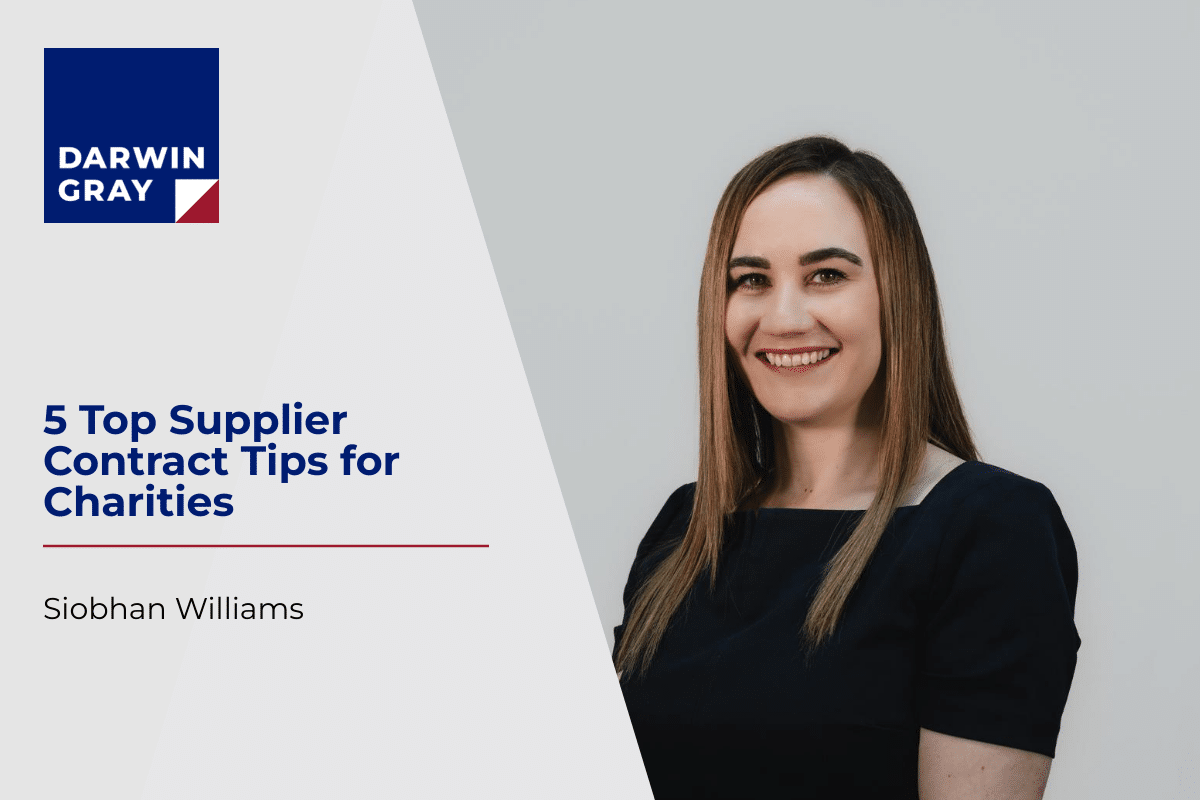March 24, 2023
By Siobhan Williams
It is vital when entering into contracts for the supply of good and/or services that you fully understand the legal obligations that you are entering into. This is all the more important for charities, when funds may be tighter than for other commercial organisations.
Most of the issues that charities should consider before entering into a contract with a supplier are identical to those faced by other commercial organisations. We set out below our top 5 tips.
Do you understand your legal obligations?
Make sure that you read the contract thoroughly to ensure that you not only understand what your legal obligations are, but that you will be able to comply with them. You should also make sure that you diarise any key dates, so that you do not forget to do something and end up in breach of the contract.
What is the contract duration?
You should check the term of the contract and also pay particular attention to the renewal provisions. Some contracts (particularly in the IT and telecoms sectors) contain automatic renewal provisions, meaning that if you do not give notice in accordance with the contractual requirements, you may be stuck with a full contractual term on a renewal.
Also, consider whether you should include a “no fault” option to terminate, meaning that you can get out of the contract on written notice if necessary.
What are your potential liabilities?
If you are entering into a contract to receive goods or services, you would expect to have to pay for them. However, you may find that the contract imposes additional liabilities on you in relation to other areas such as data protection. You should check the contract carefully for potential liabilities and keep a particular eye out for any kind of indemnity that you are being required to give.
Has the supplier tried to limit their liability?
Many suppliers seek to limit their liability in respect of the goods and/or services that they have agreed to provide. This may be by reference to what they are paid (for example a multiple of the price paid) or alternatively by reference to the limit of their insurance.
If the supplier is seeking to limit their liability make sure that the limit is appropriate for you, both from a commercial and also legal risk perspective.
If in doubt seek specialist advice
If you are in any doubt in relation to the meaning of any of the terms of the contract, seek specialist legal advice.
If you would to discuss any of the above issues in detail or require any further information please contact Siobhan Williams, on 029 2082 9124 or swilliams@darwingray.com.








